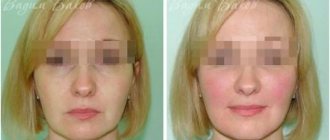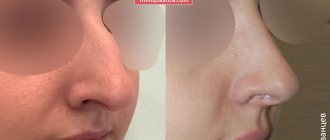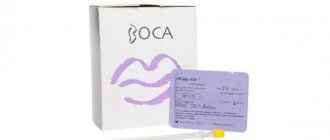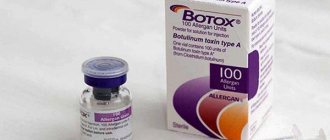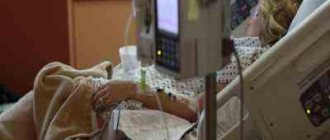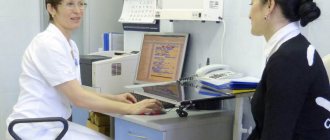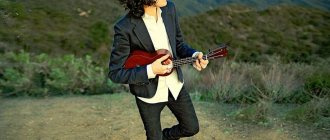Vadim Lobanov: “The patients were waiting, so I could not help but return to life and profession”
Three years ago, the life of Vadim Lobanov, a famous plastic surgeon in Omsk, could have been divided into “before” and “after”. Stroke, intensive care, rehabilitation and skepticism of colleagues about returning to the profession - this is just the tip of the iceberg that destroys many lives.
At the same time, Vadim himself assures that he initially treated what was happening as an annoying misunderstanding. He says that he did not even allow the thought that he would not return to the profession. Including because hundreds of his patients simply refused to go to other specialists.
They were waiting for him - their doctor, who, against all odds, picked up a scalpel just five months after the stroke. Today he not only operates, but also successfully trains future doctors and introduces new unique technologies for beauty and health on the Omsk market.
We met with Vadim in his cozy apartment. Smiling, open, endlessly interesting and still the same tireless professional who refuses to call what happened a miracle. How to consider yourself one of the outstanding specialists. He says that plastic surgery has made great progress today, and there are now many worthy surgeons in Omsk. And he himself simply endlessly loves his profession, so he continues to hone his skills and rejoice in his successes together with his satisfied patients.
Vadim’s wife, a well-known psychologist in Omsk, Yulia Kupreikina, is fully aware of the victory and courage of her loved one. He admits that the path to recovery was not easy. But she also had no doubt that the story would have a happy ending. And together they moved step by step towards this victory.
Thanks to Vadim Lobanov’s long-standing friendship with our portal, the interview turned out to be warm and frank.
Yulia, Vadim, tell us about your first thoughts when all this happened. Was there fear? Despair?
Vadim: For me it was an unfortunate misunderstanding. Only one thought was spinning in my head: I would rather return to work. Although after the stroke my right side did not work well at first, my speech was slurred. But I immediately started training, and the results were not long in coming. Already in the fifth month after the incident, I went back to work. At first he didn’t operate very much; he often asked to be an assistant. I am grateful to my surgeon friends for supporting me. When I started operating myself, at first I only took on what I knew I could do well.
Already in the fifth month after the incident, I went back to work.
You talk about yourself so carefully and modestly. But I know how many patients put aside, so to speak, their beauty in order to wait for you, knowing at the same time what happened. Isn't this real recognition?
Vadim: The patients were really waiting. And I tried to get back to them and to work as quickly as possible.
Julia: When a person has a stroke, no one knows what will happen in a couple of hours, and how the situation will develop further. Because any brain damage always has unpredictable consequences and is a threat to life. I remained in complete ignorance for the first two days, until I saw Vadim. Then, when I finally managed to get permission to visit him in the intensive care unit, when I saw him, I immediately realized that he would return to me, to the patients, and to life. After all, he smiled at me with his old smile. How he managed this is still a mystery to me.
When I saw him, I immediately understood: he would return to me, to the patients, and to life. He smiled his old smile. How he managed this is still a mystery.
It is known that it is not so much the stroke itself that is scary, but its consequences. And success largely depends on rehabilitation. How are things going with this in Omsk?
Yulia: I have the impression that both in Omsk and in Russia there are actually difficulties with this. If our doctors know how to treat the acute stage well and won’t let you die, so to speak (unless, of course, you apply in time), then further rehabilitation has to be collected bit by bit. As a result, we were faced with the fact that good specialists, as a rule, do not even declare themselves. They work selflessly in hospitals, returning even the most hopeless patients to a full life, and do not consider this to be anything special. But to find THESE, you need to search for a long time. Punch through one, two, three... This niche turned out to be very closed. It would be great to just open Facebook or Instagram and find a good rehabilitator. Especially when every day, every hour is precious.
Good specialists, as a rule, do not even announce themselves. They work selflessly in hospitals, returning even the most hopeless patients to a full life, and do not consider this to be anything special.
Tell us about your first emotions when you returned to work after illness. Were you afraid that something wouldn't work out?
Vadim: There was no excitement. There was annoyance from the rapid onset of fatigue, which at first was constant. Skills were restored quickly. Gradually I got into the routine. The first six months were probably the most difficult.
Did patients start returning immediately? There were no fears on their part that something might not work out for you?
Vadim: Patients actively called and visited when I was still in the hospital. They asked when I would return to work and start operating again. But it’s also impossible to say that I dropped out of the profession for some time: almost immediately after being hospitalized, I began seeing patients in my office and examined those whom I had operated on before. At the same time, I went to St. Petersburg for a conference on plastic surgery.
Yulia: It was actually nice to realize that many people, in spite of everything, were waiting for Vadim. Although there is a choice of good plastic surgeons in Omsk today. And not only in Omsk.
How much is the plastic surgery market changing?
Vadim: Competition is growing noticeably. Today, unfortunately, both good and not-so-specialists have simply learned to competently use various marketing techniques and advertising tools to make themselves known. But professionalism and marketing are two different things. Therefore, it is important for patients to simply not forget about it.
That is, it turns out that there are many talented surgeons in Omsk today, but for many you are still the best. What makes you unique?
Vadim: Perhaps the fact is that I started with general surgery, which became a powerful base for me, on which I rely. This allows me to feel the tissue well, take into account the features of human anatomy, etc. I did a lot of science, I am a Doctor of Medical Sciences. He taught students and worked at the Department of Surgery as a professor. I always strived to learn something new and introduced modern techniques. Surgery, no matter how pretentious it may sound, requires a certain courage. It seems to me that only after gaining a lot of experience can one begin the complex sections of the specialty. It takes many years of practice to earn the trust of patients.
Surgery, no matter how pretentious it may sound, requires a certain courage. And to earn the trust of patients, you need many years of practice
It turns out that the specialty “Plastic Surgery” appeared in the education system not so long ago?
Vadim: This happened seven or eight years ago. Previously, they simply trained surgeons, and, for example, “cosmetic surgery” could only be completed as an advanced training course. And now it's a specialty. And to practice plastic surgery, graduates only need to complete a two- or three-year residency. Maybe, of course, from some point of view this is correct when you immediately engage in something narrow, but I believe that you still need to start with general surgery. If only because in some emergency situations you simply cannot do anything without the help of other specialists. Maybe that’s why today’s graduates with diplomas of plastic surgeons can’t dare to start practicing for a long time. And it’s difficult for them to gain practice.
It is better to start with general surgery. If only because in some emergency situations you simply cannot do anything without the help of other specialists.
Is this why aggressive marketing is so actively used today?
Vadim: I don’t think that aggressive marketing works that actively. For people today, it’s not enough to just see a picture on Instagram. Patients choose a plastic surgeon thoroughly: they read reviews, look at the results, and study the market. Marketing is necessary, but it is adequate and truly reflects the surgeon’s qualifications. After all, if you are a really cool specialist, but people don’t know about it, they will simply find someone else. Maybe they will even go to Moscow or Israel, where, by the way, there are many Omsk graduates.
Marketing is necessary, but it is adequate and truly reflects the surgeon’s qualifications.
Maybe people go abroad not so much to specialists, but rather for technology? In this regard, are we much inferior?
Vadim: No. Don't think. In terms of equipment and use of the most advanced technologies, we are not inferior to either the best Russian or foreign clinics. For example, I am now purchasing a unique piezo device for rhinoplasty, which will allow me to work with bones and tissues in the most exquisite way. And given that rhinoplasty remains the most difficult area in plastic surgery, using a piezo device instead of traditional ones (hammer, chisel) is not only convenient for the surgeon, but also less traumatic and safer for the patient. This fall in October I will go to St. Petersburg for the next international conference on rhinoplasty, where world-class plastic surgeons will share their experience, operate on the spot and discuss the results of the operations performed. I think it will be interesting. Although I go to such conferences almost every two to three months. And then I gratefully use in my practice the techniques that famous surgeons demonstrate.
Now I am purchasing a unique piezo device for rhinoplasty, which will allow me to work with bones and tissues with maximum precision. Its use instead of traditional hammer, chisel, etc. – not only more convenient for the surgeon, but also less traumatic and safer for patients.
Vadim, how then can we explain the conviction of many Omsk residents that it is better to do plastic surgery somewhere away from Omsk, and even better abroad?
Vadim: There is no prophet in his own country. Apparently so. There are specialists everywhere, both good and bad. Therefore, I would focus on the fact that the main advantage of having an operation in the city where you live is that the surveillance is nearby and there is no stress when flying or moving. The risk of acclimatization is eliminated, after all. And the patient is monitored constantly and in the “here and now” mode. Therefore, when I myself operate on out-of-town patients, I “send” them home only if I am sure that everything is in order.
Did they try to entice you to other clinics? Other cities?
Vadim: We tried, of course. But now everyone knows that it is useless. I am not going to leave Omsk. Why do I need it? Go to hectic Moscow to get the same thing: home - work - home. So I went to the clinic, worked there, and came home. I can do all this here too. Why go somewhere for this?
There are more prospects there...
Vadim: If there are any prospects, they can be realized here too.
The standard of living there is higher. Clients are more prosperous...
Vadim: This is a fallacy. Everything that is in Moscow can be bought in Omsk. Do you need an improved apartment? Buy it! Only for this you will have to put in more effort. Whether in Omsk or Moscow, there is a category of people who do not make any effort, but constantly complain about something. Therefore, for me Omsk is an absolutely comfortable city both for work and for living.
Tell us how you spend your leisure time?
Julia: We read books. Aloud. Now they’ve started reading Stephen King, before they read Eugene Onegin. And this is usually psychological.
Vadim: We also like to put candles on this table, pour a glass of wine and talk.
Julia: I think we are happy because we are interesting to each other. We always have something to talk about, something to discuss.
We are happy because we are interesting to each other. We always have something to talk about, something to discuss
Vadim: We share with each other what happened during the day. Sometimes I have to turn to Yulia as a psychologist. This applies to communication with conflicting patients.
And how to communicate with them?
Vadim: Each case is individual, but the main thing is to maintain composure and respect for the patient.
Julia: The fact is that most conflict patients are people who are generally dissatisfied with their lives. It's sad, but the plastic surgeon (as well as the president, the weather, the store clerk, the bus driver, or the neighbor) becomes simply one of the elements with which he will be dissatisfied. Unfortunately, it is not always possible to avoid meeting such people. But only a qualified psychologist or psychotherapist can help them.
Tell us how people's attitudes towards plastic surgery are changing today?
Vadim: Over the past five to ten years, plastic surgery has become more popular and accessible. And from the point of view of the cost of services, and the choice of plastic surgeons, and the development of technologies and equipment. Therefore, today many more people are thinking about adjusting their appearance. Including those who just a few years ago categorically rejected any thoughts about this. It is also clear that when turning to a plastic surgeon, people, as a rule, already clearly know what they want and what result they expect. And that's okay.
Today, many more people are thinking about adjusting their appearance. Including those who a few years ago categorically rejected any thoughts about this
Vadim, have there been cases in your practice when you challenged yourself and are still proud of the end result?
Vadim: I don’t specifically challenge myself. Difficult cases find me on their own, and in fact there are many of them. I remember, for example, the reconstruction of the nose. When he has not been previously operated on, doing rhinoplasty is not a problem. But if the nose is destroyed as a result of injury, illness or previous surgery, a lot has to be restored, and not all surgeons can cope with this. And I seem to be coping. As a result, a patient comes to me, for example, with a sunken nose, which disfigures his face, and leaves with a completely changed good appearance, I am very proud of this.
I don’t specifically challenge myself. Difficult cases find me on their own, and in fact there are many of them. For example, if the nose is destroyed as a result of injury, illness or previous surgery, a lot has to be restored, and not all surgeons can cope with this. And I seem to be coping.
Yulia: Apparently, such an operation is really very complicated. And what Vadim does can actually be considered a miracle. I have heard more than once from friends that if something serious happens to the nose, only Dr. Lobanov can handle it. I admit, at these moments I am very proud of my husband.
I recently saw on your Instagram, where you are in the photo at one of the recent conferences with one of the most famous rhinoplasty - Wolfgang Hubisch. Did you manage to find out any secrets and achievements from him?
Vadim: Of course. Gubish quite actively showed all his secrets of mastery, many of which I successfully apply in practice. And in a personal conversation I was able to clarify the issues that concern me.
Do plastic surgeons always generously share their personal best practices? Doesn't this ultimately create competition?
Vadim: Plastic surgeons who know their worth are not afraid of competition. On the contrary, they like to share their skills and experience.
Vadim, you recently launched an interesting video project “Plastic surgery with your own eyes”, where you tell and show not only patients “before” and “after”, but also the actual process of the operation. For what purpose was all this created? And how do you convince patients to participate?
Vadim: There are quite a lot of people who want to take part in this project. There is a reason for patients - a discount in the cost of the operation. Anyone can become a hero of the program. First, it is removed during the consultation, then the elements of the operation itself, then the process of removing the plaster or sutures. The most interesting thing is that people in Omsk turned out to be very open. They are happy to become participants in the program, agreeing to show themselves. As a result, in two months we have already managed to film seven episodes, and all of them are a huge success. Omsk residents get the opportunity to observe how all this happens in reality and thus get rid of possible negative expectations. And we don’t have any secrets or skeletons in our closet.
People in Omsk turned out to be very open. They are happy to become participants in the program, agreeing to show themselves
Today you not only operate, but also teach at the Department of Surgery at the Medical University. Why You Need It?
Vadim: Communication with students mobilizes. Moreover, I will say that this year, with the head of the Department of Surgery, we decided to do a residency in plastic surgery. And at the moment we are already preparing documents for this. In the meantime, I called out to young surgeons so that they could come for at least a week or two to work out their training methods. This will allow a novice surgeon to begin training and gain experience, without which, as we have already said, it is difficult to succeed in the profession.
Will you be raising your own competitors?
Vadim: I don’t think this is competition. For me this is professional growth. When you start teaching, firstly, you learn yourself, improve your skills, and, secondly, you become more famous. As a result, new opportunities arise both for professional growth and for organizing the process.
Yulia: Vadim is so open, so not greedy in terms of having someone stand in the operating room. He is always happy to tell everything and show why students especially love him!
Let's wish each other success!
PS: To be honest, I rarely share personal impressions about the subjects of my interviews. I prefer to leave this pleasure to the readers. But here I couldn’t stay away. Maybe because the most intimate moments of my own life were touched upon? Or maybe because with his faith in himself, his endless devotion to his profession, which for Vadim Lobanov means LIFE, he forces others to believe in some already forgotten ideals: selfless dedication, sincerity, kindness, faith in people, boundless love. You look into those captivated eyes, filled with light and warmth, and you understand: of course, he would never give up. He loves life too much. And his life is truly that of the legendary Doctor Lobanov. That's why he's with us. And he is ready to continue to give us beauty and health. Of course, at the most professional level.
Photo : Liliya Smakovskaya @liliya_smak, from the personal archive of Vadim Lobanov
Tags:
- Vadim Lobanov
- plastic surgery
- professional
- surgery
Share:
Lobanov Vadim Gennadievich
General surgeon, endoscopic surgeon, maxillofacial surgeon, plastic surgeon. Member of OPREH. He is a professor at the Department of Faculty Surgery, a Doctor of Medical Sciences and a surgeon of the highest category.
Plastic surgeon Lobanov V.G. in 1985 he graduated with honors from the Faculty of Medicine of the Omsk Medical Institute. The doctor practiced for a long time as a general surgeon, and in 2004 received specialization in the field of aesthetic medicine. In the following years, Lobanov V.G. actively developed his skills as a plastic surgeon, took advanced training courses, advanced training and professional retraining. Among the surgeon's leaders is Prof. Milanov O.V. and prof. Pshenisnov K.P. He also has more than 40 publications in scientific publications, as well as 6 original inventions.
Lobanov Vadim Gennadievich performs plastic surgery on the face, in some cases using minimally invasive endoscopic techniques. They also turn to the surgeon to perform mammoplasty, abdominoplasty, liposuction, and scar removal. The appointment takes place at the Omsk Regional Clinical Hospital.
Prices for services:
| Plastic surgery | ||
| Face-to-face consultation | 350 — 1.000 rub. | |
| Abdominoplasty | 40.000 — 80.000 rub. | Depending on the type of operation |
| Blepharoplasty | 13.000 — 43.000 rub. | Depending on the type of operation |
| Asian eyelid surgery | 20.000 — 30.000 rub. | Depending on the type of operation |
| Canthoplasty, canthopexy | 3.000 — 5.000 rub. | Depending on the type of operation |
| Gynecomastia in men (treatment) | 10.000 — 25.000 rub. | Depending on the type of operation |
| Liposuction | 11.000 — 15.000 rub. | For the first 2 zones |
| Lipofilling | 11.000 — 15.000 rub. | Depending on the type of operation |
| Mentoplasty | 18.000 — 25.000 rub. | Depending on the type of operation |
| Otoplasty | 11.000 — 90.000 rub. | Depending on the type of operation |
| Earlobe plastic surgery | 6.000 — 8.000 rub. | For 1 lobe |
| Cheek surgery | 18.000 — 25.000 rub. | Depending on the type of operation |
| Platysmoplasty | 30.000 — 40.000 rub. | Depending on the type of operation |
| Breast lift (mastopexy) | 25.000 — 70.000 rub. | Depending on the type of operation |
| Thigh lift | 40.000 — 55.000 rub. | Depending on the type of operation |
| Facelift | 15.000 — 90.000 rub. | Depending on the type of operation |
| Circular lift, SMAS | 35.000 — 70.000 rub. | Depending on the type of operation |
| Forehead and eyebrow lift | 30.000 — 45.000 rub. | Depending on the type of operation |
| Endoscopic lift | 30.000 — 90.000 rub. | Depending on the type of operation |
| Butt lift | 45.000 — 55.000 rub. | Depending on the type of operation |
| Rhinoplasty | 45.000 — 110.000 rub. | Depending on the type of operation |
| Plastic surgery of the tip of the nose | 23.000 — 35.000 rub. | Depending on the type of operation |
| Rhinoplasty | 13.000 — 17.000 rub. | Depending on the type of operation |
| Revision rhinoplasty | 65.000 — 110.000 rub. | Depending on the type of operation |
| Septoplasty | 20.000 — 25.000 rub. | Depending on the type of operation |
| Breast augmentation | 35.000 — 55.000 rub. | Without cost of implants |
| Correction of nipples and areolas | 9.000 — 12.000 rub. | Depending on the type of operation |
| Breast reconstruction | 40.000 — 130.000 rub. | Depending on the type of operation |
| Removal of implants | 25.000 — 35.000 rub. | Depending on the type of operation |
| Breast reduction | 40.000 — 80.000 rub. | Depending on the type of operation |
